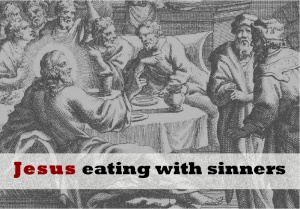Well, it is done. Donald Trump is the Republican nominee. The balloons have fallen, and now we prepare for Hillary.
Over the past few months, and especially the last few days, we have been overrun by coverage of The Donald. Even if you don’t watch the news. Even if all you were looking for was a cute cat video or an update on a friend’s pregnancy, you have been blasted with Trump.
But what have you seen? Support of Trump, sure. Mocking of Trump, yes. Vitriol, fear, incredulity. But I think the main thing you have seen is that like him or hate him, he is the focus of so many people.
In my opinion, we talk about him far too much. But of even greater concern is how we talk about him.
Listen for just a few moments to either a supporter or detractor and you get the same feeling: Donald Trump has the power to change the world! No one mentions that it is that pesky congress that makes laws (whether you like or hate “Obamacare” remember congress had to pass it first.) Never mind that the power of the President is limited (I highly suggest listening to this Freakonomics podcast about presidential power). Apparently Trump has the ability to either resurrect American greatness or flush us all irrevocably down the toilet. He sounds like a Greek god. The only question is his intent.
Really? Is that what we think?
Don’t get me wrong. I want good leaders. Like good laws. But…
Whoever the president is cannot make me love or hate my neighbor. They cannot make me stop teaching recovering drug addicts ways to improve their closes relationships. Trump can’t rob me of the joy my children bring me or the excitement I feel about a newborn. Hillary won’t make church better or worse. They can’t make me treat my wife with honor and respect, or stop me from doing so. The president cannot control my morality, my ethics, my compassion.
The important things cannot be touched, because they don’t come from the president.
They come from Jesus.
Remember Him?
He’s the guy who constantly said “Fear not.” The one who announce he was The Way, Truth, and Life. The fellow who claimed that the kingdoms of this world can’t touch his.
I am not trying to disparage anyone who has political concerns. Nor am I trying to convince you how to vote. Rather, I am simply asking: Do you fear Donald Trump (or Hillary Clinton) more than you trust Jesus? Does your anxiety about this election in any way line up with your beliefs about Jesus as savior? Do we give the president too much power over our lives and Jesus not enough?
I do hear Christians asking who Jesus would vote for. And more often I hear Christians proclaiming they know who Jesus would vote for. I sometimes wonder, if Jesus were running, and His platform was radically different from the Republican or Democrat, would we vote for Him? Have we so bought that the way to really change the world is through politics that we have forgotten the one who actually changes hearts.
Perhaps I am wrong, but it seems a lot of us Christians actually believe that the key to Christianity and the future of this world is who gets elected. But I thought we already had a king?









